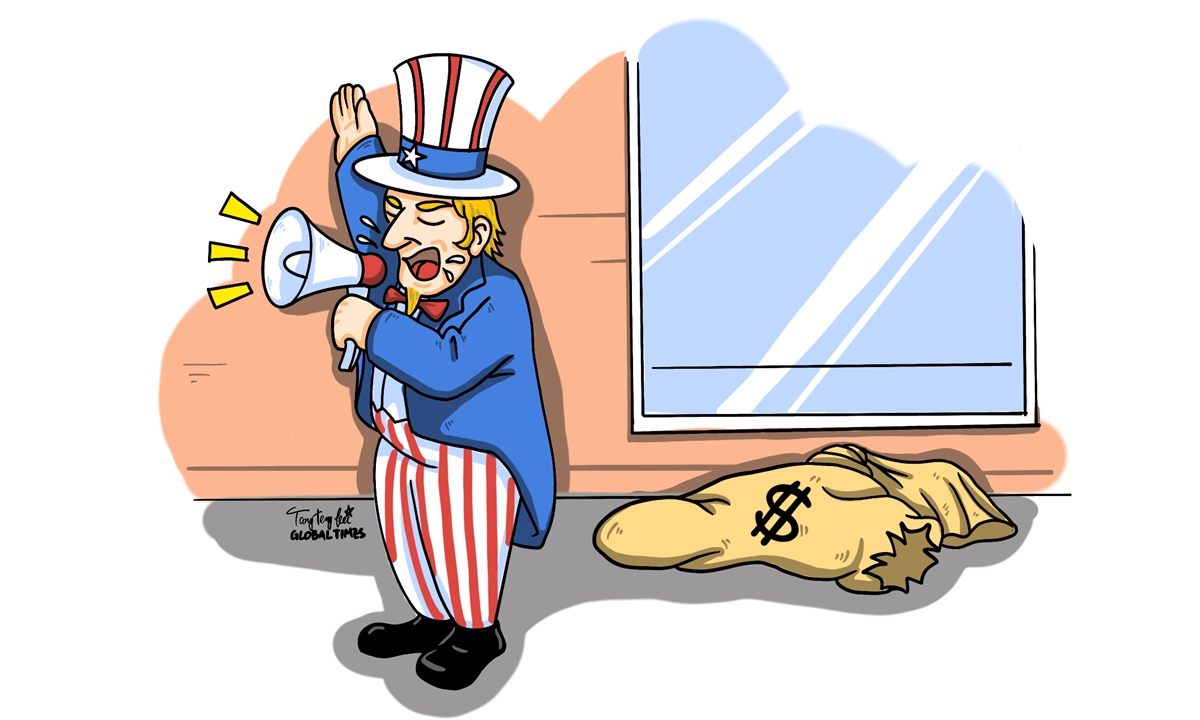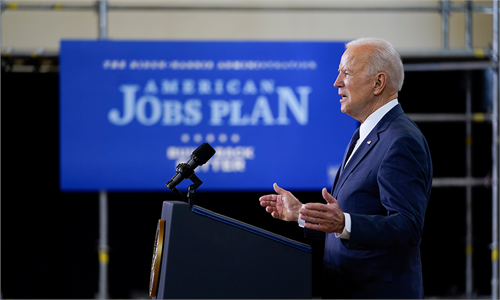
Illustration: Tang Tengfei/GT
As Biden's infrastructure bill that would provide funding for roads, bridges, broadband internet and other projects reportedly enters a critical phase, ongoing bipartisan clashes over the vote timeline was in the spotlight.
US House Speaker Nancy Pelosi on Sunday said she won't send the bipartisan deal to the House floor until the Senate passes a larger infrastructure package through reconciliation. Republican Senator Rob Portman responded by knocking Pelosi for potentially blocking the passage of the infrastructure bill, noting that "If she has her way, we could. I'm not sure what the future is of reconciliation."
The journey to passage taken by Biden administration's infrastructure plan underlines the difficulties in pushing forward with infrastructure investment in the US. In the past, similar infrastructure bills proposed by former administrations always faced controversy and opposition. In the Trump era, infrastructure spending proposals were met with strong opposition on several occasions.
Specifically, the fiscal strain on the US government has always been a touchy issue, and it is also not uncommon to see people call into question whether infrastructure plan could be implemented efficiently in the country as anticipated.
In the view of the Biden administration, the grand infrastructure plan will not only create millions of jobs, but also boost domestic manufacturing, conducive to the sustained economic recovery from the pandemic in the long run. US President Joe Biden already signed in January an executive order aimed at strengthening "Buy American" provisions that encourage the federal government to purchase American-made products in a wide range of aspects including infrastructure, clean energy and personal protective equipment.
But that doesn't mean the US doesn't need imported materials to support its infrastructure plan. In fact, it would be virtually impossible for such a grand infrastructure program to rely on the US domestic industries alone.
Take the most common raw materials for transportation infrastructure, cement and steel, as an example, the US domestic production of cement and steel has already fallen short of its demand. According to media reports, in the first five months of this year, US steel imports rose 7.1 percent year-on-year to 10.68 million tons. The US is by far the world's largest cement importing country. In 2020, imports of cement to the US amounted to over 17 million tons.
In this sense, once Biden's infrastructure plan really gets underway, it is conceivable that the country will have to import large quantity of raw materials. Yet, that may pose another challenge to the plan as high inflation has led to spikes in global commodity prices, exerting more pressure on the federal budget. For instance, China is known as a major supplier of raw materials, technology and equipment for infrastructure construction. And the recent rise in Chinese steel prices has led some to worry about the delivery of US infrastructure projects.
Moreover, the US used to take protectionist measures to protect its domestic industries, but these could become a significant obstacle for the infrastructure plan by raising the costs. If anything, it is time for the US to reconsider some of the tariffs on steel and other products for the benefits of the infrastructure plan.



